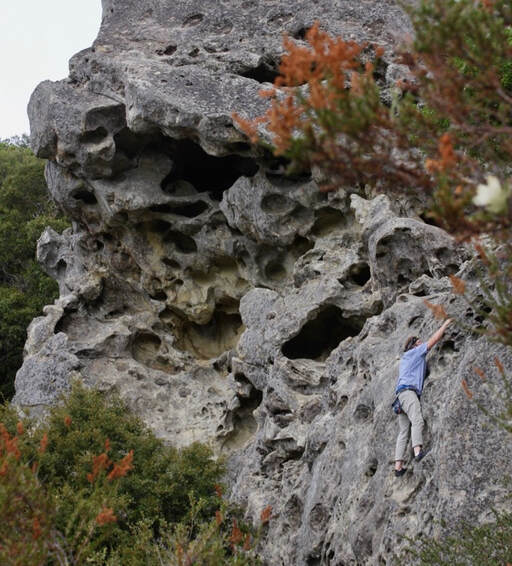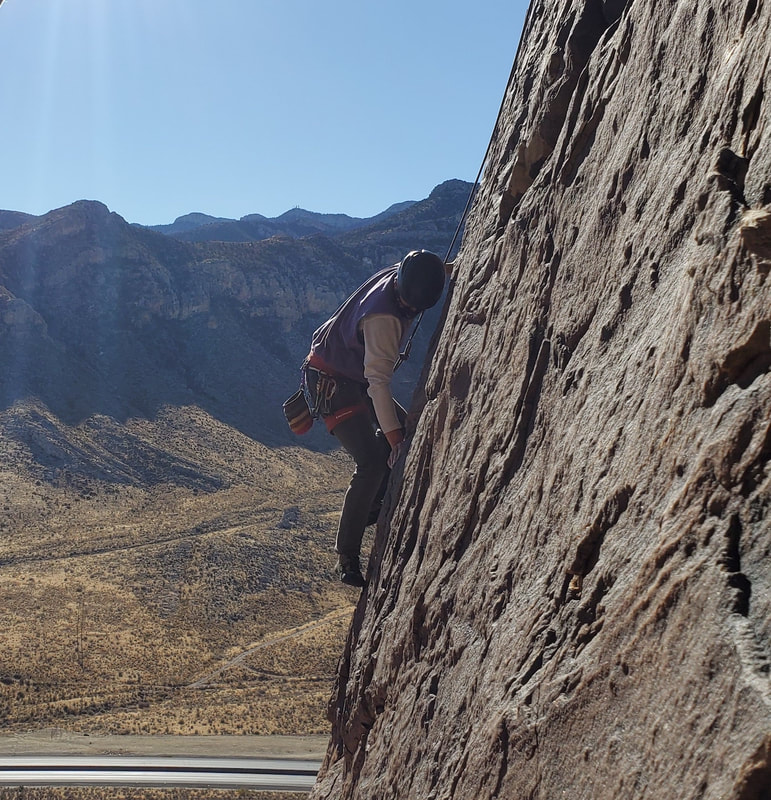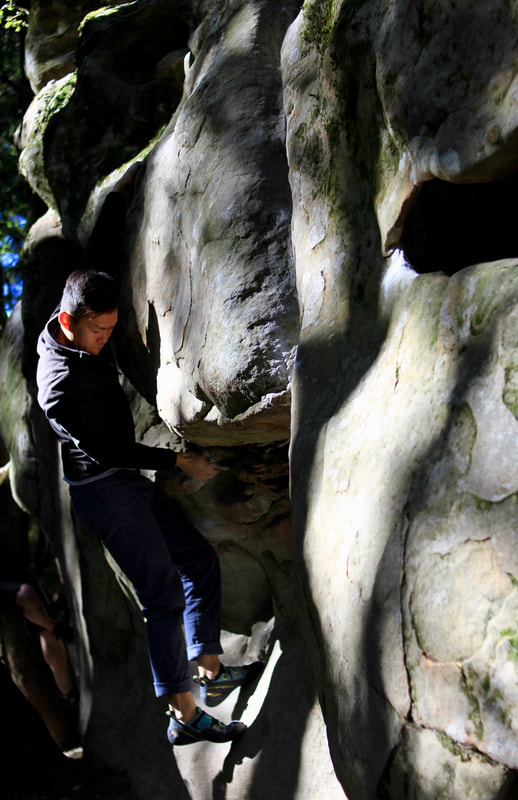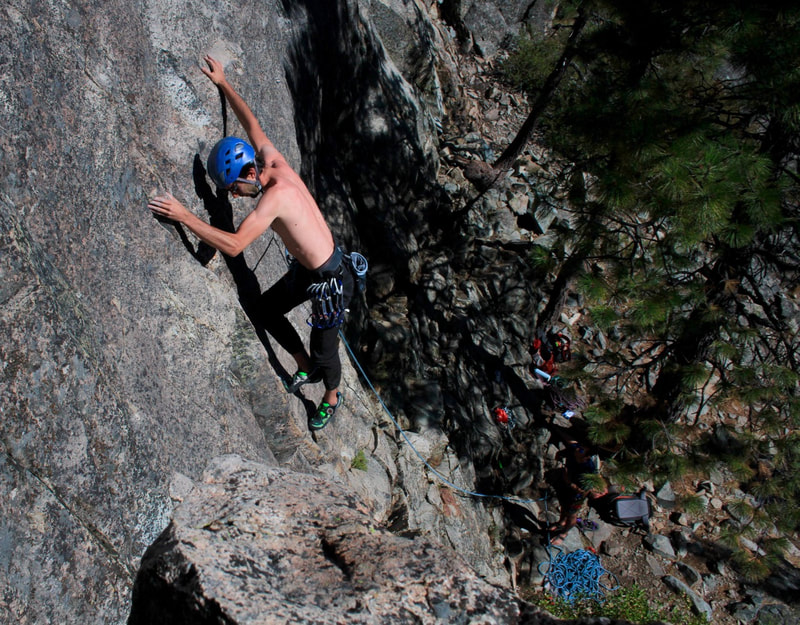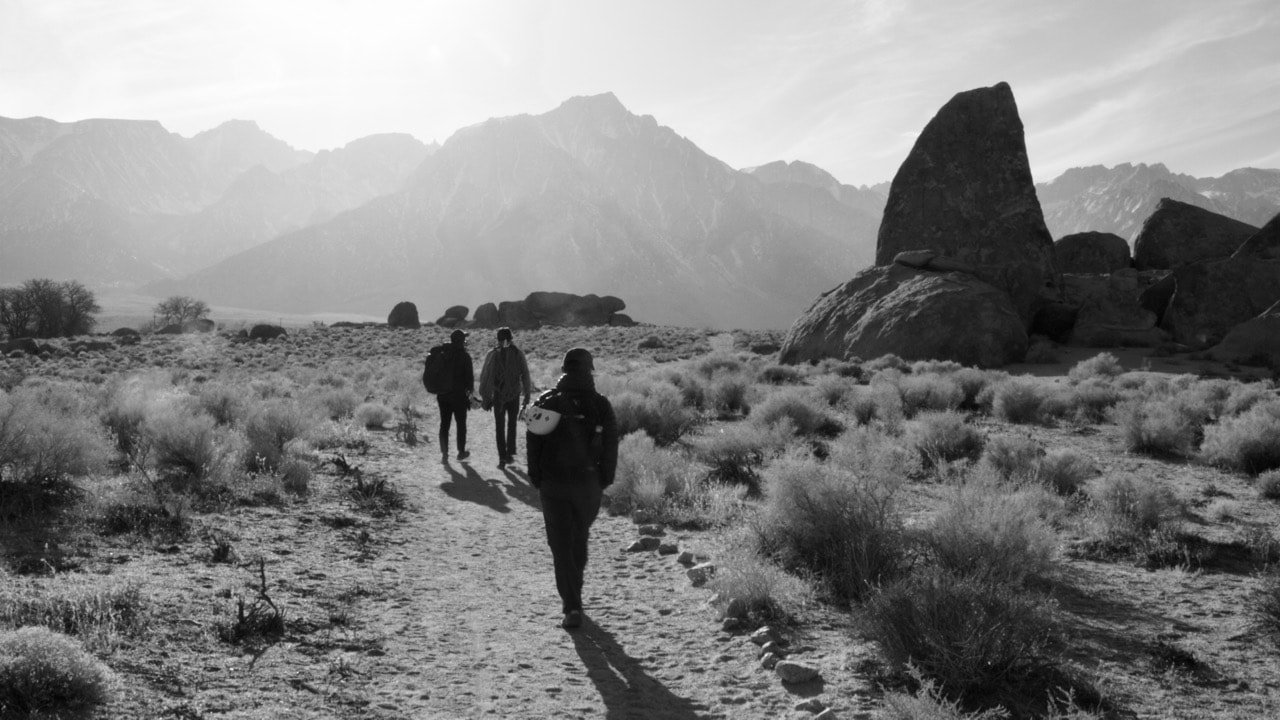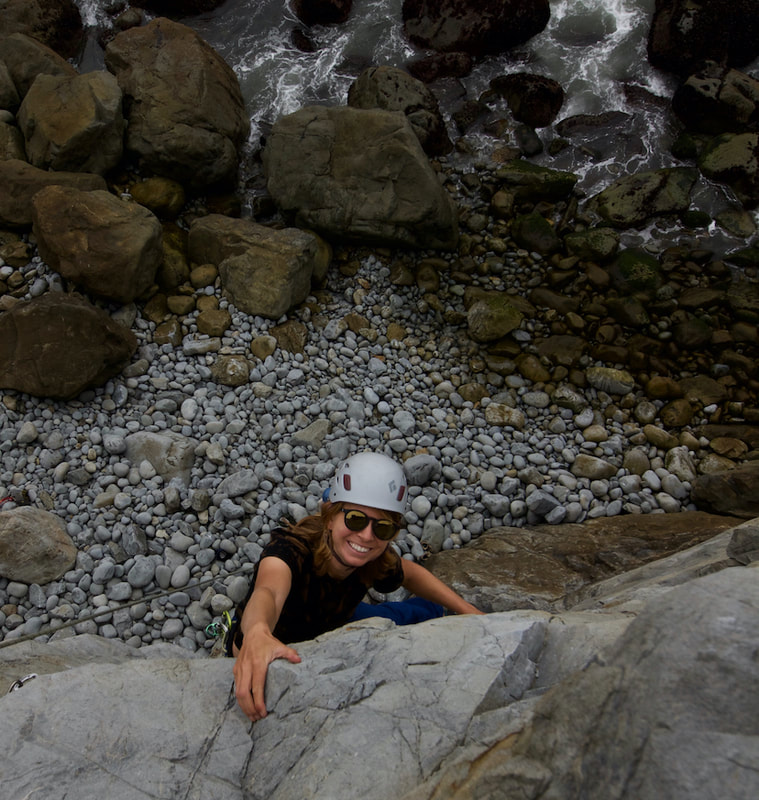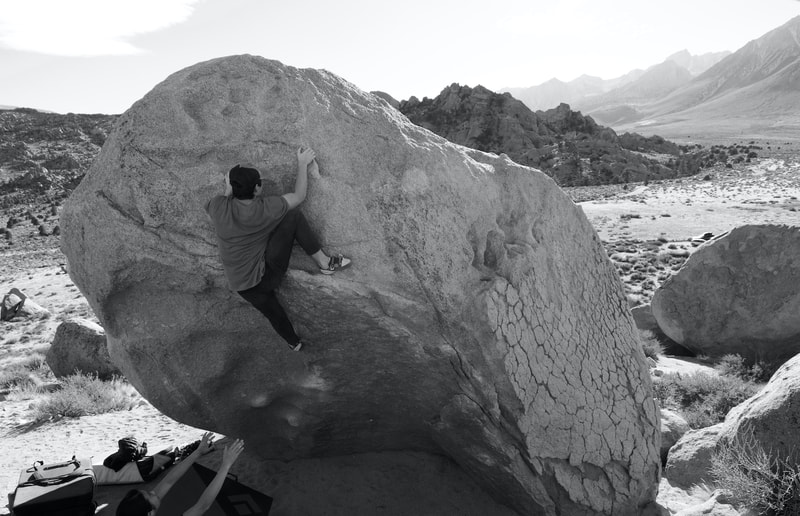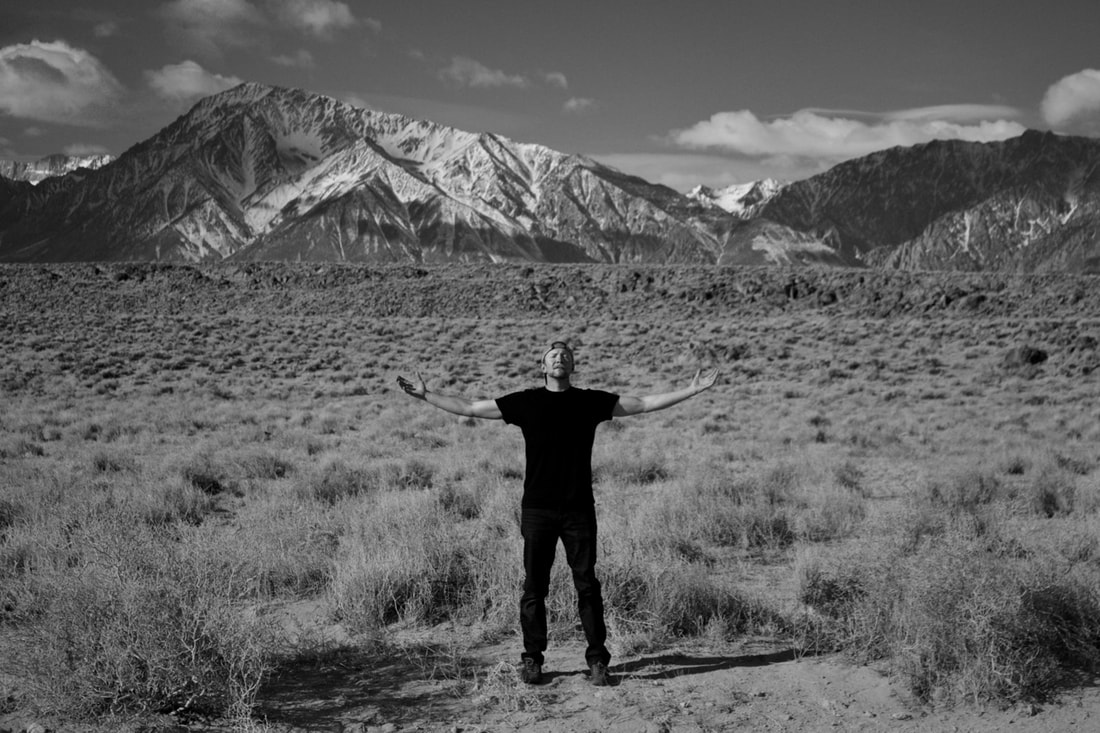Trigger Warning: This story contains references to suicide, sexual abuse, self-harm, violence, and trauma.
She kept banging on the glass door of the shower in the bathroom of our apartment, so hard that it finally gave way, almost allowing her entry to my latest suicide attempt. Had she gained entry, she could have tried to wrestle the glass shard from my hand. But I had wedged my naked body up against the door in such a way that nothing, or nobody, could get in. We had been fighting for hours - years, actually. We had told ourselves, and others, that we were just passionate people. We told ourselves, and others, things to justify our behavior, to make it seem normal. This time was different, though. The intensity was higher than our previous fights had been, and it was escalating. I was wedged naked in the shower, resisting my girlfriend’s attempt to save me. This wasn’t normal.
All of this began long before Stacie and I met. I was four when my parents decided to split up. They sat me down on the ugly mustard-yellow and brown furniture in the living room of our rural Oklahoma home. An odor of cigarettes clung to the material and hung in the air. They looked at me intensely, with both yearning and fear, and asked who I wanted to live with. I had to choose. It all seemed out of my control and all they needed was my answer. I chose my dad. I have no idea why and I was still too young to understand what it all meant.
Whatever my reasons, my dad and I packed up, leaving my mom and two older half-brothers - my mom’s children, ages12 and 14, from a previous marriage.
Dad found work as a maintenance man for an apartment complex near Dallas, Texas. We lived there for just over two years. A teenage boy who lived next door to us befriended me by luring me into his room with the promise of getting to play. There was always some sort of stipulation regarding access to his toys. It began with removing articles of clothing, and, over time the stakes got higher, where the rules involved us interacting with each other physically. I have only fragments of memories of what happened beyond a certain point; I only knew it was wrong and to never tell. The shame was engulfing. Unable to express it, I locked it all away.
But my body told another story. I couldn’t control my emotions. I wet the bed every night until I was 12. They gave me medication to help control the bed-wetting. Even being asked to speak to a teacher after class made me shake and cry in terror. Later, I acted out in ways that neither I nor my parents could understand. I tried my best to hold it all together, but eventually it all became too much.
When I was fourteen, a deep wave of depression hit me and would accompany me for more than two-and-a-half decades.
Despite high test scores and several strong academic years, I barely graduated high school due to a lack of interest. While in high school, I admired the photo club from a distance – imagining the fun they must be having with such expensive equipment. I day-dreamed of buying a camera and moving to Colorado for mountain adventures. My church youth group went on yearly ski trips and fund-raised to allow low-income kids, like myself, to come along. These experiences fed the day-dream. But instead of pursuing what I believed to impossible for a kid like myself, I chose the route of “no other options” and joined the Marine Corps.
The Marine Corps expanded my options and after leaving I entered community college and university. Then came jobs in hospitality and sales. I habitually filled my time. As a youth, I drowned myself in extra-curricular activities – prayer circle, bible study, Fellowship of Christian Athletes, school sports, competitive theater. As an adult, I drowned myself in alcohol, drugs, and other dangerous endeavors. I couldn’t hold a job long enough to make any major strides. I was a master of self-sabotage: lying in bed, agonizing over having to get up for work and arriving late, calling in sick far too often for any reasonable employer to take me seriously. I didn’t care. I didn’t want to work. I didn’t want to do anything.
In December 2012, I met Stacie. In the beginning she presented as free spirited and loving. In the beginning I presented as well adjusted and confident. I was 32. The euphoria of a new and exciting relationship provided an initial reprieve from my struggles, but, although our relationship lasted almost six years, it tanked early on. We were mean to ourselves, to each other, and to everyone around us.
Instability dominated our lives. Shortly after we began dating, Stacie suggested that we leave Austin, Texas for a summer on the East Coast. And, just like that, with no real plan for the future, we set off. Neither of us could hold a job. We moved countless times, bouncing between Texas and Massachusetts. Often, we had nowhere to go and lived in the basement of her father’s home, south of Boston - I am glad we never had children.
Stacie and I fought constantly and viciously. She controlled me through my emotions. She would talk over me when I would try to speak. She had a way of arguing with me that left my brain running in circles. I couldn’t catch my breath. I couldn’t keep up with her; couldn’t gather my thoughts.
In response, around the end of our first year together, I started hurting myself. She wouldn’t leave, and I couldn’t leave. I felt trapped; I had nowhere to go, so I started hitting myself, so hard once, I broke the tips of several knuckles; another time knocked my right eye loose and couldn’t see for almost two minutes. And another time, I cut myself above my left eye, a wound that required eleven stitches. Although I was bleeding profusely, Stacie refused to drive me to the hospital, so I walked there.
My dad passed away in 2014, initiating an even deeper unravelling. The arguments got worse. I hurt myself more. By now, my family ties were all but severed and my close friends wanted nothing to do with who I had become. I was alone. I had nowhere to go. I hated myself. I hated my partner. I hated everyone. I dreamt of the day when I would have the “courage” to take my own life. Anything was better than my current reality. I called the suicide hotline more than once. Every time, they asked if I had considered “it” as a way out. I always joked by asking the operator if they meant today, or just in general.
And then the day came when I wasn’t joking anymore; the day I positioned myself, just so, in the shower. I was going to do it. But Stacie called the cops. I heard her talking to 911. I ripped open the shower door and set out after her. Sensing my rage and desperation, she ran. I caught up with her outside, tripped her, and hung up the phone in her hand. I tore her flip phone into two pieces, and threw them into the yard. We screamed at each other. Then the cops arrived. They took our statements and arrested me. I was charged with family violence and interfering with an emergency call.
I am not proud of my actions that day, but they changed the course of my life. During my 36-hours in Collin County jail, I was interviewed by a social worker. We discussed what she described as my “panic attacks” – a concept I had never heard of. I thought such feelings were part of everyday life for normal people. They certainly had been for me. This revelation set me on a course that would forever change my perception of life.
You can’t fight an enemy of unknown character. At the time, my demons had no names. I had never had something I could identify as “my problem.”
We eventually moved back to Texas, where I was offered an opportunity to get a free mental health exam through the Texas unemployment office. I was heavily self-medicating at the time – marijuana, Xanax, and alcohol – but was willing to learn more about myself, my brain, my depression and suicidal ideology, and, perhaps, my behavior.
The exam was administered by a Doctor of Psychology. It lasted for the better part of four hours. It included a standard IQ portion, followed by several questions to determine my trauma history and stress level. Then came my first opportunity to tell the story of my life to a qualified professional. She listened, and took notes.
I had anticipated that storytelling and expressing my feelings was what the whole ordeal was going to be about, so prior to arrival at my appointment, out of habit and coping, I had smoked a bowl of weed with Stacie. Then, just for good measure, I smoked another on the way to the appointment. I was really high.
The results of my examination didn’t come for three weeks. When I came in for my second appointment, my doctor relayed the results: PTSD (post-traumatic stress disorder) and major depressive disorder. She told me I was lucky to have my brain. The way she described it, based on the stress level in my body, I shouldn’t be able to do things “normal” people did every day: drive a car, hold a job, or buy groceries. Apparently, she told me, I was blessed with a rational and intelligent brain which allowed me the ability to function in a “mostly” normal way despite my demons.
After this diagnosis I was left to fend for myself, but now I was armed with new information. I knew my enemies. My demons had names. I could recognize them now, and I could fight them. I had an inkling that my life could be different, and sought out tools, books, and resources for victims of sexual abuse. I read and learned, and began to heal.
Somehow, Stacie and I remained together – still fighting – for two more years. After Stacie inherited a modest amount of money in 2017, we pondered what to do. Rent prices in Boston were through the roof and we were ready for a change. California. We scoured Craigslist and saw an ad for this really cheap boat that came with its own slip in Sausalito. That sounded pretty sweet. On a whim, we went for it. It ended up being the most decrepit, non-functional boat, on the scummiest dock in all of Sausalito.
Two days before New Year’s Eve Stacie and I got into a massive argument that drove me to leave for three nights. I escaped south to Big Sur and slept at a campsite in my mini-van.
For the first time since a child in my church youth group, I was immersed in the outdoors. I spent those days hiking, and eventually soul-searching. I hated my partner. I hated the life that I had created for myself. I wondered, how can I change this situation without financial means or support? How can I escape the unescapable prison I had built around myself? As I neared the summit on a steep incline, a sense of calm allowed my rational brain to kick in: We can only control the things we can control, nothing more and nothing less. Things I could control at the time included my time, who I spend it with, and how I choose to spend it.
While on the trails, I was also flooded with memories of the numerous youth-group trips to rock climbing gyms, as well as the feelings I had when consuming the climbing and outdoor media of the day – Climbing Magazine, Rock and Ice, and Outside. Something felt important there. After my return to the decrepit boat and toxic home life, climbing continued to grow in my mind. Eventually, in February 2018, I joined the Planet Granite climbing gym in San Francisco.
Climbing became my refuge from my relationship and the stresses of life. Within the gym walls I found self-confidence, courage, community, and what it means to want to improve. I bought a crash pad and spent a summer bouldering in Glen Park within San Francisco, California and went to the forest-and sandstone-boulder filled Fontainebleau of the western U.S., Castle Rock State Park in Los Gatos, California. I made friends and ventured even further - Bishop, Yosemite, Sonora Pass, and Tahoe. Then I left the state - Red Rocks, Nevada, City of Rocks, Idaho, and Joe’s Valley Utah.
All of this began long before Stacie and I met. I was four when my parents decided to split up. They sat me down on the ugly mustard-yellow and brown furniture in the living room of our rural Oklahoma home. An odor of cigarettes clung to the material and hung in the air. They looked at me intensely, with both yearning and fear, and asked who I wanted to live with. I had to choose. It all seemed out of my control and all they needed was my answer. I chose my dad. I have no idea why and I was still too young to understand what it all meant.
Whatever my reasons, my dad and I packed up, leaving my mom and two older half-brothers - my mom’s children, ages12 and 14, from a previous marriage.
Dad found work as a maintenance man for an apartment complex near Dallas, Texas. We lived there for just over two years. A teenage boy who lived next door to us befriended me by luring me into his room with the promise of getting to play. There was always some sort of stipulation regarding access to his toys. It began with removing articles of clothing, and, over time the stakes got higher, where the rules involved us interacting with each other physically. I have only fragments of memories of what happened beyond a certain point; I only knew it was wrong and to never tell. The shame was engulfing. Unable to express it, I locked it all away.
But my body told another story. I couldn’t control my emotions. I wet the bed every night until I was 12. They gave me medication to help control the bed-wetting. Even being asked to speak to a teacher after class made me shake and cry in terror. Later, I acted out in ways that neither I nor my parents could understand. I tried my best to hold it all together, but eventually it all became too much.
When I was fourteen, a deep wave of depression hit me and would accompany me for more than two-and-a-half decades.
Despite high test scores and several strong academic years, I barely graduated high school due to a lack of interest. While in high school, I admired the photo club from a distance – imagining the fun they must be having with such expensive equipment. I day-dreamed of buying a camera and moving to Colorado for mountain adventures. My church youth group went on yearly ski trips and fund-raised to allow low-income kids, like myself, to come along. These experiences fed the day-dream. But instead of pursuing what I believed to impossible for a kid like myself, I chose the route of “no other options” and joined the Marine Corps.
The Marine Corps expanded my options and after leaving I entered community college and university. Then came jobs in hospitality and sales. I habitually filled my time. As a youth, I drowned myself in extra-curricular activities – prayer circle, bible study, Fellowship of Christian Athletes, school sports, competitive theater. As an adult, I drowned myself in alcohol, drugs, and other dangerous endeavors. I couldn’t hold a job long enough to make any major strides. I was a master of self-sabotage: lying in bed, agonizing over having to get up for work and arriving late, calling in sick far too often for any reasonable employer to take me seriously. I didn’t care. I didn’t want to work. I didn’t want to do anything.
In December 2012, I met Stacie. In the beginning she presented as free spirited and loving. In the beginning I presented as well adjusted and confident. I was 32. The euphoria of a new and exciting relationship provided an initial reprieve from my struggles, but, although our relationship lasted almost six years, it tanked early on. We were mean to ourselves, to each other, and to everyone around us.
Instability dominated our lives. Shortly after we began dating, Stacie suggested that we leave Austin, Texas for a summer on the East Coast. And, just like that, with no real plan for the future, we set off. Neither of us could hold a job. We moved countless times, bouncing between Texas and Massachusetts. Often, we had nowhere to go and lived in the basement of her father’s home, south of Boston - I am glad we never had children.
Stacie and I fought constantly and viciously. She controlled me through my emotions. She would talk over me when I would try to speak. She had a way of arguing with me that left my brain running in circles. I couldn’t catch my breath. I couldn’t keep up with her; couldn’t gather my thoughts.
In response, around the end of our first year together, I started hurting myself. She wouldn’t leave, and I couldn’t leave. I felt trapped; I had nowhere to go, so I started hitting myself, so hard once, I broke the tips of several knuckles; another time knocked my right eye loose and couldn’t see for almost two minutes. And another time, I cut myself above my left eye, a wound that required eleven stitches. Although I was bleeding profusely, Stacie refused to drive me to the hospital, so I walked there.
My dad passed away in 2014, initiating an even deeper unravelling. The arguments got worse. I hurt myself more. By now, my family ties were all but severed and my close friends wanted nothing to do with who I had become. I was alone. I had nowhere to go. I hated myself. I hated my partner. I hated everyone. I dreamt of the day when I would have the “courage” to take my own life. Anything was better than my current reality. I called the suicide hotline more than once. Every time, they asked if I had considered “it” as a way out. I always joked by asking the operator if they meant today, or just in general.
And then the day came when I wasn’t joking anymore; the day I positioned myself, just so, in the shower. I was going to do it. But Stacie called the cops. I heard her talking to 911. I ripped open the shower door and set out after her. Sensing my rage and desperation, she ran. I caught up with her outside, tripped her, and hung up the phone in her hand. I tore her flip phone into two pieces, and threw them into the yard. We screamed at each other. Then the cops arrived. They took our statements and arrested me. I was charged with family violence and interfering with an emergency call.
I am not proud of my actions that day, but they changed the course of my life. During my 36-hours in Collin County jail, I was interviewed by a social worker. We discussed what she described as my “panic attacks” – a concept I had never heard of. I thought such feelings were part of everyday life for normal people. They certainly had been for me. This revelation set me on a course that would forever change my perception of life.
You can’t fight an enemy of unknown character. At the time, my demons had no names. I had never had something I could identify as “my problem.”
We eventually moved back to Texas, where I was offered an opportunity to get a free mental health exam through the Texas unemployment office. I was heavily self-medicating at the time – marijuana, Xanax, and alcohol – but was willing to learn more about myself, my brain, my depression and suicidal ideology, and, perhaps, my behavior.
The exam was administered by a Doctor of Psychology. It lasted for the better part of four hours. It included a standard IQ portion, followed by several questions to determine my trauma history and stress level. Then came my first opportunity to tell the story of my life to a qualified professional. She listened, and took notes.
I had anticipated that storytelling and expressing my feelings was what the whole ordeal was going to be about, so prior to arrival at my appointment, out of habit and coping, I had smoked a bowl of weed with Stacie. Then, just for good measure, I smoked another on the way to the appointment. I was really high.
The results of my examination didn’t come for three weeks. When I came in for my second appointment, my doctor relayed the results: PTSD (post-traumatic stress disorder) and major depressive disorder. She told me I was lucky to have my brain. The way she described it, based on the stress level in my body, I shouldn’t be able to do things “normal” people did every day: drive a car, hold a job, or buy groceries. Apparently, she told me, I was blessed with a rational and intelligent brain which allowed me the ability to function in a “mostly” normal way despite my demons.
After this diagnosis I was left to fend for myself, but now I was armed with new information. I knew my enemies. My demons had names. I could recognize them now, and I could fight them. I had an inkling that my life could be different, and sought out tools, books, and resources for victims of sexual abuse. I read and learned, and began to heal.
Somehow, Stacie and I remained together – still fighting – for two more years. After Stacie inherited a modest amount of money in 2017, we pondered what to do. Rent prices in Boston were through the roof and we were ready for a change. California. We scoured Craigslist and saw an ad for this really cheap boat that came with its own slip in Sausalito. That sounded pretty sweet. On a whim, we went for it. It ended up being the most decrepit, non-functional boat, on the scummiest dock in all of Sausalito.
Two days before New Year’s Eve Stacie and I got into a massive argument that drove me to leave for three nights. I escaped south to Big Sur and slept at a campsite in my mini-van.
For the first time since a child in my church youth group, I was immersed in the outdoors. I spent those days hiking, and eventually soul-searching. I hated my partner. I hated the life that I had created for myself. I wondered, how can I change this situation without financial means or support? How can I escape the unescapable prison I had built around myself? As I neared the summit on a steep incline, a sense of calm allowed my rational brain to kick in: We can only control the things we can control, nothing more and nothing less. Things I could control at the time included my time, who I spend it with, and how I choose to spend it.
While on the trails, I was also flooded with memories of the numerous youth-group trips to rock climbing gyms, as well as the feelings I had when consuming the climbing and outdoor media of the day – Climbing Magazine, Rock and Ice, and Outside. Something felt important there. After my return to the decrepit boat and toxic home life, climbing continued to grow in my mind. Eventually, in February 2018, I joined the Planet Granite climbing gym in San Francisco.
Climbing became my refuge from my relationship and the stresses of life. Within the gym walls I found self-confidence, courage, community, and what it means to want to improve. I bought a crash pad and spent a summer bouldering in Glen Park within San Francisco, California and went to the forest-and sandstone-boulder filled Fontainebleau of the western U.S., Castle Rock State Park in Los Gatos, California. I made friends and ventured even further - Bishop, Yosemite, Sonora Pass, and Tahoe. Then I left the state - Red Rocks, Nevada, City of Rocks, Idaho, and Joe’s Valley Utah.
These traveling and climbing days grew in number, as did my friends. For the first time in my life, I surrounded myself with people I trusted, who wanted to communicate, and who viewed each other’s safety as paramount. I built honest and caring friendships – a far cry from what I had previously known in human relationships, including the relationship with myself.
Stacie and I eventually split up. She moved back to the East coast and entered into another bad relationship. I stayed in California. Although we continued communication for a time, the emotional manipulations and her anger-at-the-world was no longer something I was willing to have in my life. Recognizing that I have choices, we no longer talk. Now, almost three years later, I am finally living my best life, although not in Colorado as I had envisioned after high school, I am living full time in the Sierra Nevada mountains, working at a mountain resort. I alpine ski regularly and have taken up cross country skiing and snowshoeing. I have a couple of cameras now and work hard to improve my photography.
A sample of climbing photos taken by author Jason Glasgow.
I also climb regularly, growing my skill set. I have started leading easier trad routes and eventually envision big-wall climbing. The mental journey and healing are ongoing too, I’ve sought out counseling and read books about trauma.
Every day I wake up and look out my front window and see beautiful snow and an endless sea of pines. I couldn’t feel more thankful to be alive. Sometimes when I drive down the hill for groceries, I can’t help but cry, thinking I could have been missing out on all this.
Untreated trauma has a way of sneaking up on you, making you take a hard, second look at things. I’d never imagined that daily consideration of suicide could be “real life” for me, but for years it was. I’d also never imaged that hardened deposits of sand, crystals, and minerals pressed against my fingers and toes could have helped save me, but they did.
It’s impossible to know how life would have unfolded if I had made different decisions. Driving to Big Sur was a pivotal step; I discovered a part of myself there and made the commitment to find something that I loved - and to do it once more, over and over again, for my happiness alone.
It’s simple things that add up to a special life - topping-out on a climb, the send-beers, the sweat and sore muscles, the injuries, the beautiful people, and the incredible places that climbing exists. It was there for the taking all along, I just needed to believe that I deserved happiness.
Peace, Love, Unity, Respect.
If you, or someone you know is struggling with thoughts of suicide or committing acts of self-harm, please get help involved. There’s always a way out, even if you don’t think there is. There’s always a better choice.
-- Jason Glasgow

